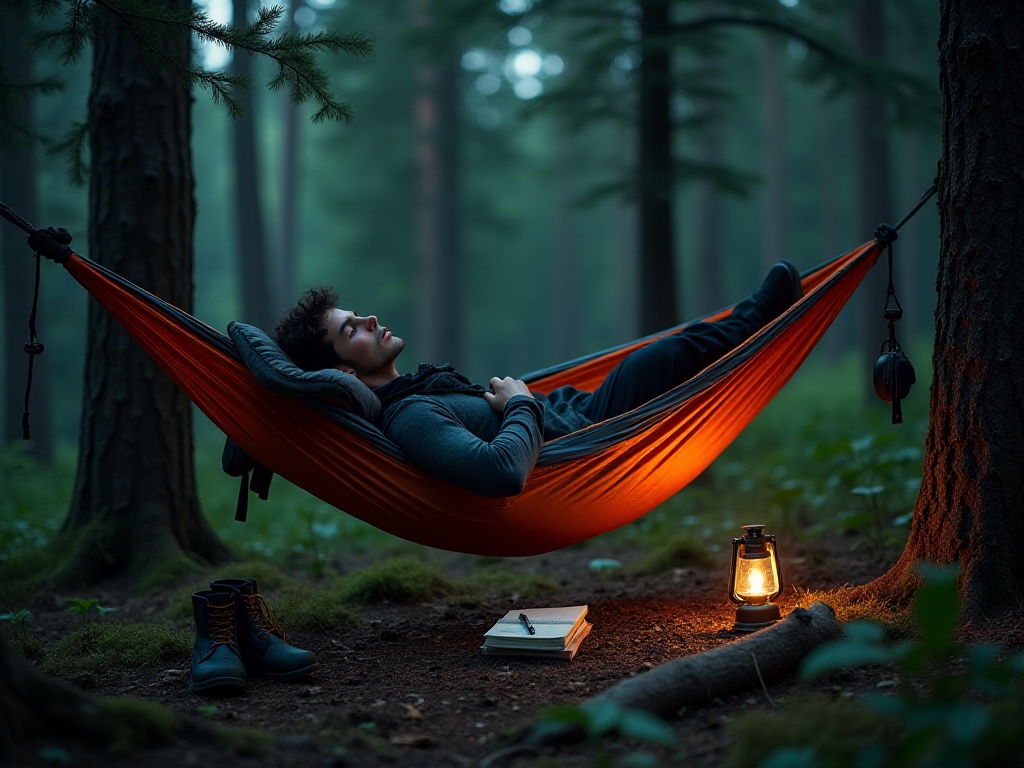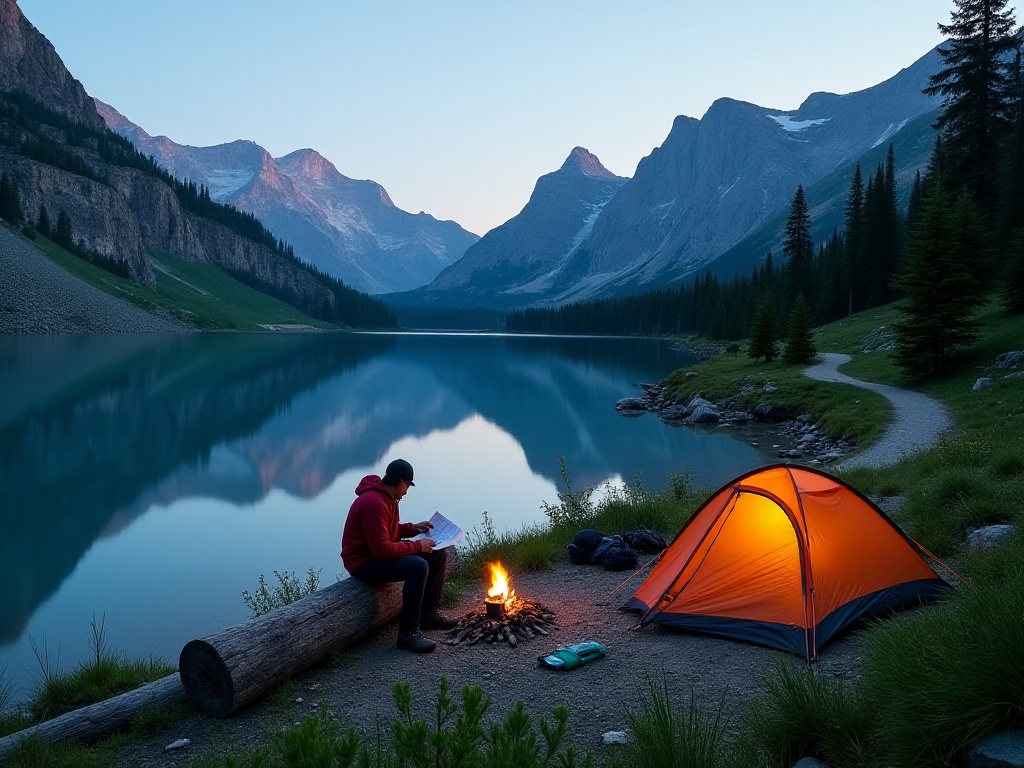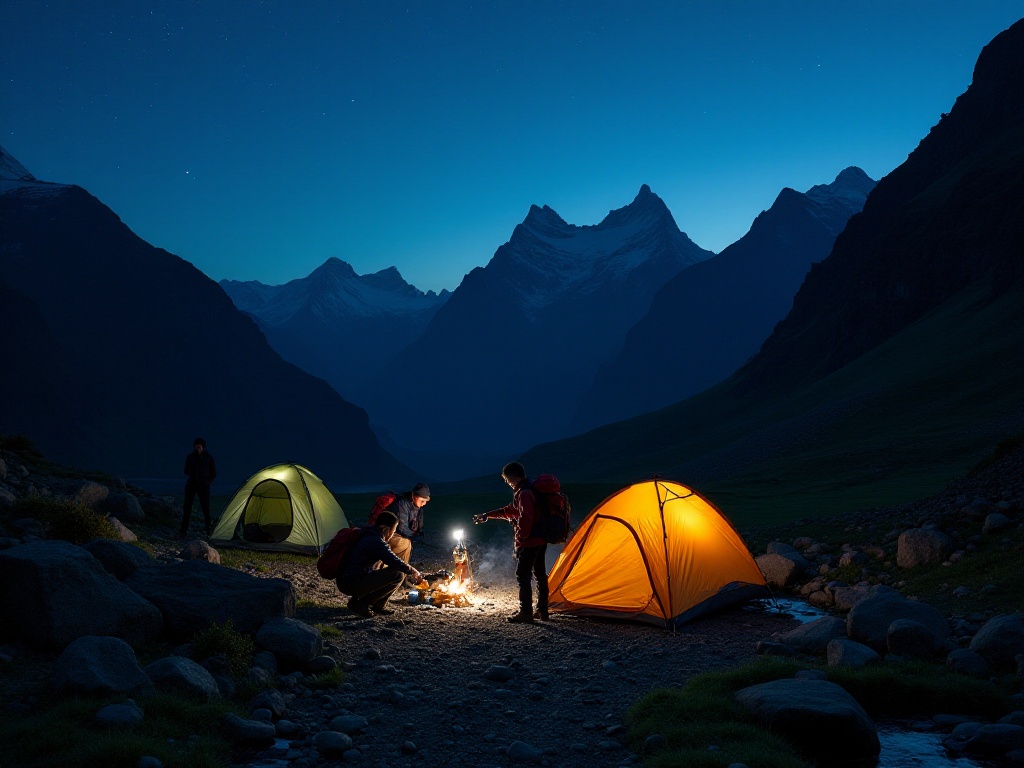Origins
It was an ordinary weekend afternoon, and I was scrolling through Xiaohongshu as usual. Suddenly, a video of Vietnamese pho made me stop mindlessly scrolling. The blogger was sitting at a street food stall in Hanoi's Old Quarter, with bustling crowds behind them and various motorcycles whizzing past, their horns beeping intermittently as if letting me smell the aroma of that bowl of pho. Street vendors called out selling various snacks and drinks, distant Vietnamese conversations could be heard, and French colonial buildings were faintly visible in the twilight. At that moment, an inexplicable urge came over me: why not take a spontaneous backpacking trip while I'm still young?
The term "backpacker" might still be associated with "budget travel" stereotypes in many people's minds. But in reality, it represents a unique lifestyle and travel philosophy. You only need a backpack containing all essentials, stay in high-value hostels or welcoming homestays, and experience foreign cultures in the most down-to-earth way. This travel style can be traced back to the hippie culture of the 1960s. Back then, a group of young people seeking freedom and peace began traveling across Eurasia with simple packs, searching for their Shangri-La. Over time, this initially alternative way of traveling gradually evolved into a widely popular mainstream form of tourism.
On social media, more and more young people are sharing their backpacking experiences. Some discovered a century-old shop in a corner of Hue's ancient city, tasting authentic Vietnamese spring rolls; others harvested rice with local farmers on rural roads in Siem Reap, Cambodia; and some handed out sticky rice to monks in the early morning in Luang Prabang, Laos. These authentic and vivid stories filled me with longing for backpacking adventures.
Pre-trip Preparation
When I first decided to go backpacking in Thailand, I discovered it was completely different from group tours. Just researching took me an entire month. I needed to study which airline had the cheapest tickets, when was the most economical time to buy tickets, and how to avoid peak tourist seasons. For accommodation, I spent considerable time comparing hostels' locations, prices, and reviews, because good lodging not only saves money but also helps you meet like-minded travel companions.
I discovered backpackers share a common trait: they're particularly good at careful budgeting, making the most of limited funds. For example, in Bangkok, many backpackers choose to stay near the lively Khao San Road. Hostels here only cost about 100 RMB per night, allowing you to meet friends from around the world and experience authentic Bangkok nightlife. The hostel common areas often host various cultural exchange activities, from Thai language learning to Thai cooking classes. Compared to chain hotels costing thousands, this accommodation style offering both savings and unique experiences is truly the king of value for money.
Besides flights and accommodation, transportation was another key area to research. I spent much time understanding Bangkok's public transit system, including the BTS Skytrain, MRT subway, and river boats. Following locals' advice, I also downloaded the Grab ride-hailing app, which is absolutely essential in Southeast Asia. To save money, I specifically researched the overnight sleeper train from Bangkok to Chiang Mai; although it takes over ten hours, the scenery and experience are well worth the ticket price.
During preparation, I found many online guides were too idealistic, overlooking many practical details. For instance, Thailand uses round two-pin sockets, and not preparing an adapter beforehand can be troublesome. Another example is Thai SIM cards - they're more expensive at the airport, but you can save money by booking online in advance. These seemingly trivial details often determine the quality of your trip.
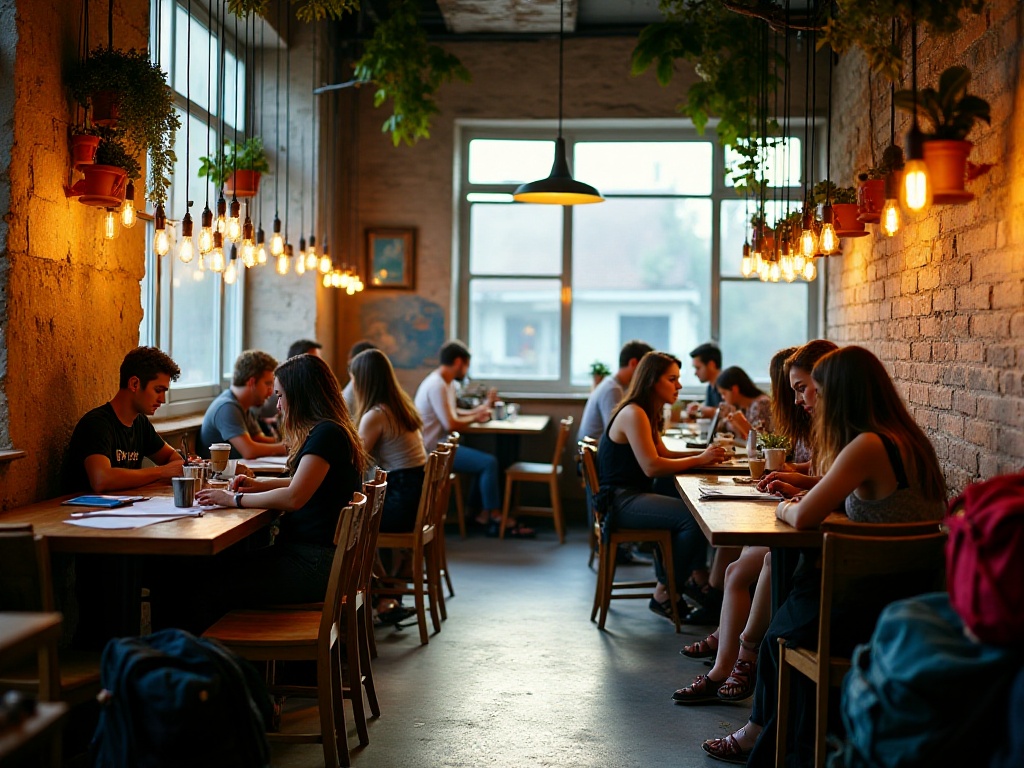
Stories from the Road
At a hostel called "Good Luck" in Chiang Mai, I met an unforgettable elderly German couple. Though retired, they maintained the adventurous spirit of youth. Since beginning their world tour, they had visited 37 countries. Every morning, Hans, the elderly gentleman, would sit reading on the hostel's terrace, occasionally sharing his travel experiences with young backpackers. One morning, he told me, "When I was young, I always thought I needed enough money before I could travel. Now I realize travel doesn't actually require much money - what's important is a heart willing to explore."
This elderly couple's lifestyle sparked my strong interest in the "digital nomad" community. Last year in Bali, I met Mike, a Canadian programmer, at a coworking space called Hubud. He had maintained this lifestyle for three years: working remotely from cafes during the day, surfing or attending yoga classes in the evening, and exploring nearby islands on weekends. This lifestyle perfectly combining work and travel is attracting more and more young people. According to the latest statistics, there are already over 35 million digital nomads globally, and this number continues to grow.
At Chiang Mai's night market, I met a couple from Beijing. Both designers, they sustained their travel expenses through freelance work. The woman told me they had been traveling this way for six months, visiting Vietnam, Cambodia, Laos, and Thailand. Although their income was less than in Beijing, their quality of life had improved. In Chiang Mai, they only needed about 3,000 RMB monthly to rent an apartment with a pool and could eat fresh tropical fruits daily.
These encounters made me realize that travel isn't just a vacation style but could be a lifestyle choice. On the road, you meet all kinds of people, each with their unique story and life choices. These encounters and conversations often bring unexpected inspiration.
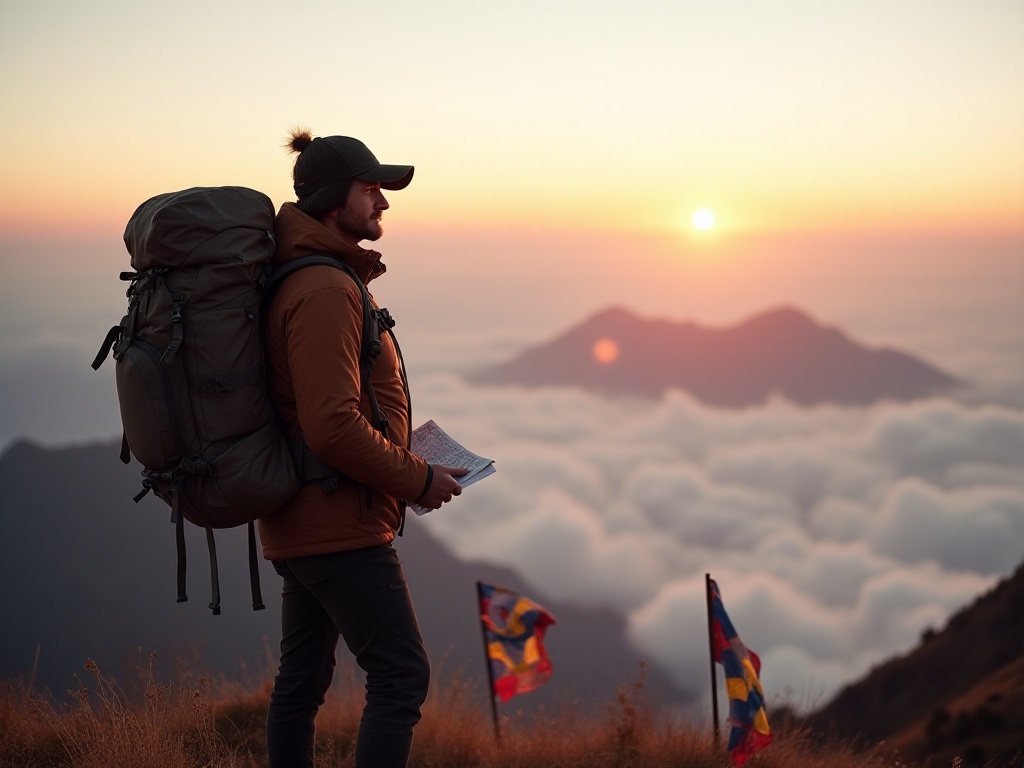
Practical Advice
When it comes to what's most important in backpacking, safety is undoubtedly the answer. According to the 2023 Travel Safety Report, 90% of travel incidents could be avoided through adequate preparation. My experience is that you must prepare three aspects before departure: first, understand potential risks at your destination, including security situations and common scams; second, choose appropriate equipment and clothing, especially corresponding sun protection and rain gear for different seasons; third, develop a feasible budget plan, including emergency funds preparation.
When traveling in Southeast Asia, I usually choose a 15-20 liter backpack as my main bag. Though this capacity seems small, it's completely sufficient with proper planning. My equipment list typically includes 4-5 quick-dry clothing items, rain gear, a small first-aid kit, sun protection products, power bank, and power adapter. Based on my experience, a month-long Southeast Asian backpacking trip, including flights, can be feasibly budgeted at 8,000-10,000 RMB.
Specific expenses can be distributed as follows: round-trip flights about 3,000 RMB, accommodation averaging 100 RMB per night (3,000 RMB per month), daily food 100 RMB (3,000 RMB per month), with remaining funds for transportation and attraction tickets. To further save expenses, you can travel during off-peak season when flights and accommodation are much cheaper. Additionally, many attractions offer student tickets, so remember to bring your student ID.
I also have some insights on equipment selection. Backpacks should be waterproof material with anti-theft features. Clothing should be quick-dry fabric, so items washed at night can dry by morning. It's best to bring two pairs of shoes - sports shoes and sandals - which can handle most situations. Sunscreen must be waterproof with SPF no lower than 50. Also, I recommend bringing a small portable umbrella, as Southeast Asian weather changes quickly and rain can start suddenly.
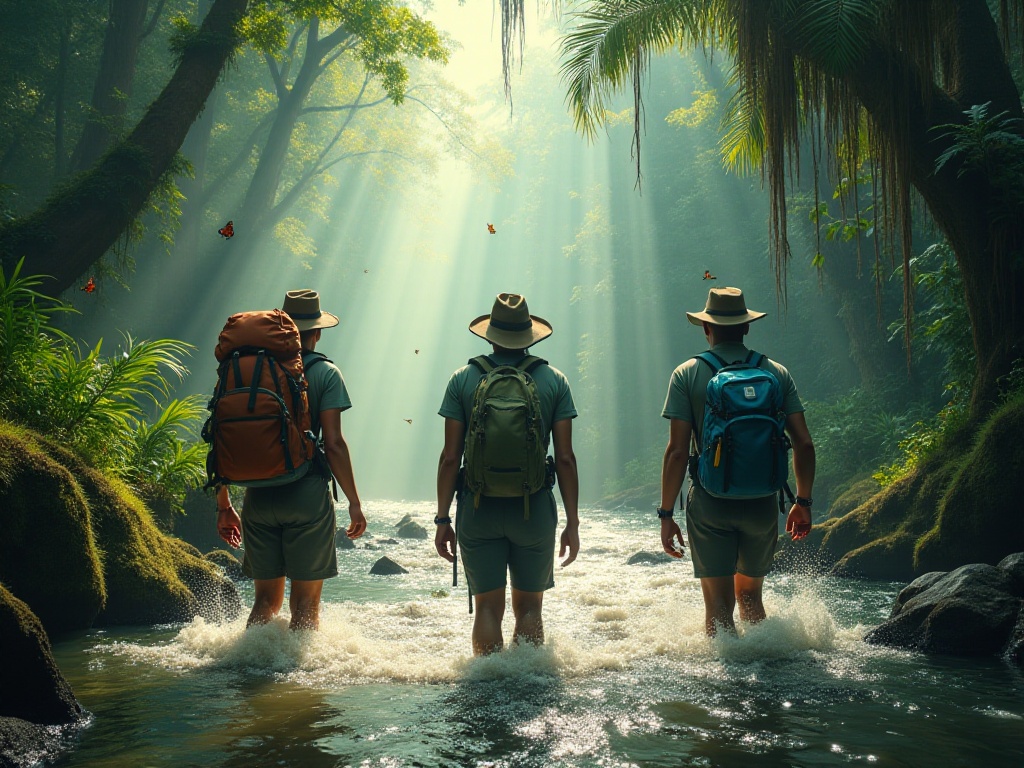
In-Depth Experiences
The most fascinating aspect of backpacking is how it allows you to truly integrate into local life. In Hanoi, I specifically chose a locally-operated homestay. This homestay was near Hoan Kiem Lake in the Old Quarter, in a French colonial building nearly a century old. Every morning, Aunt May, the landlady, would brew Vietnamese coffee in the courtyard - the rich coffee aroma mixed with jasmine fragrance became my most unforgettable morning memory.
Aunt May not only taught me how to brew coffee using a Vietnamese filter but also how to select the freshest ingredients. Every morning, I would follow her to the nearby morning market. The bustling crowds in the market, the back-and-forth bargaining voices, and the scents of various fresh tropical fruits and spices all let me experience the most authentic Vietnamese street life.
According to a survey, over 75% of backpackers consider interactions with locals their most precious travel memories. This reminds me of an experience in a small village in Siem Reap. One sunny afternoon, on my way back from visiting Angkor Wat, I met a group of Cambodian children playing. They enthusiastically invited me to join their games, teaching me to weave animals from coconut leaves. Though we couldn't communicate verbally, that pure joy remains unforgettable.
In Luang Prabang, Laos, I participated in a local family's cooking class. The hostess, Keo, not only taught us to make traditional Laotian dishes but also took us to her small garden to pick herbs. While preparing ingredients, she introduced us to the characteristics and uses of each spice, as well as their significance in Laotian culture. This kind of deep understanding of local culture is something you can never get in a luxury hotel.
Through these in-depth experiences, I not only learned many practical life skills but more importantly built friendships across borders. I still have Aunt May's Vietnamese coffee recipe in my phone, and occasionally receive festival greetings from Keo. These warm connections make my travels more meaningful.
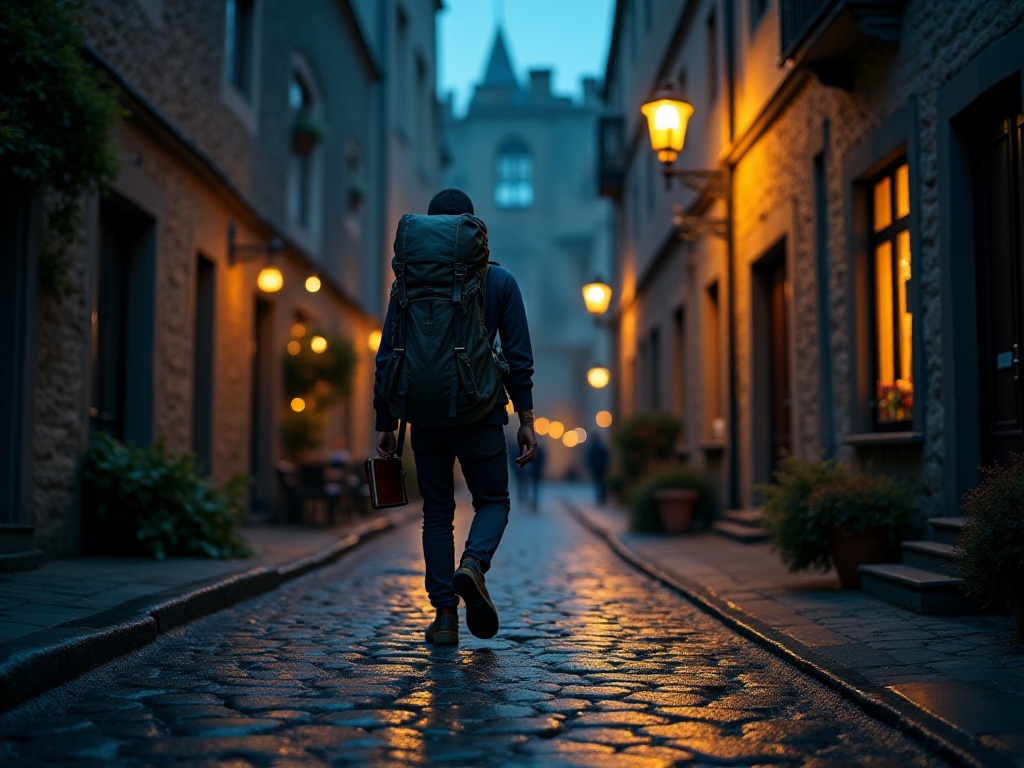
Insights and Reflections
After over a year of backpacking experiences, my biggest realization is that travel has never been about escape, but about growth. Each new place brings new challenges and new abilities. For instance, how to communicate with locals when language barriers exist, how to make optimal choices with limited budgets, how to ensure safety in unfamiliar environments - all these require continuous learning and adaptation.
Did you know? Research data shows that long-term backpackers demonstrate significant improvements in problem-solving abilities, cross-cultural communication skills, and psychological resilience. These abilities are becoming increasingly important in modern society. At work, I found my ability to handle unexpected situations notably improved; in life, I also became more inclusive and open-minded, able to face various challenges with a more positive attitude.
Backpacking also gave me new insights into "simple living." When all your possessions must fit in one backpack, you realize many things aren't actually necessities. This simple lifestyle not only makes travel easier but also helps maintain a more minimalist and eco-friendly attitude after returning to daily life.
While traveling, I also deeply experienced the charm of "slow living." Instead of rushing to check off tourist spots or obsessing over completing travel lists, truly slow down and feel each moment. Sometimes getting lost in a strange city brings unexpected surprises; sometimes a simple conversation with a street vendor gives you deeper understanding of a place.
So, are you feeling a bit restless now? Actually, backpacking isn't that difficult - what's important is taking the first step. Perhaps after reading this article, you can start planning your first backpacking trip. Choose a destination that interests you, make necessary preparations, then bravely set out on your journey. Remember, life's most beautiful scenery often lies outside your comfort zone. Travel not only lets you see the world's vastness but helps you discover your unlimited possibilities.
Before concluding this article, I want to say that backpacking isn't just a way of traveling, but a life attitude. It teaches us to experience life in the simplest way and embrace the world with the most open mindset. Perhaps one day, when you also shoulder your pack and set out on your journey, you'll discover that this world is far more wonderful than you imagined, and you yourself are far braver than you thought.


